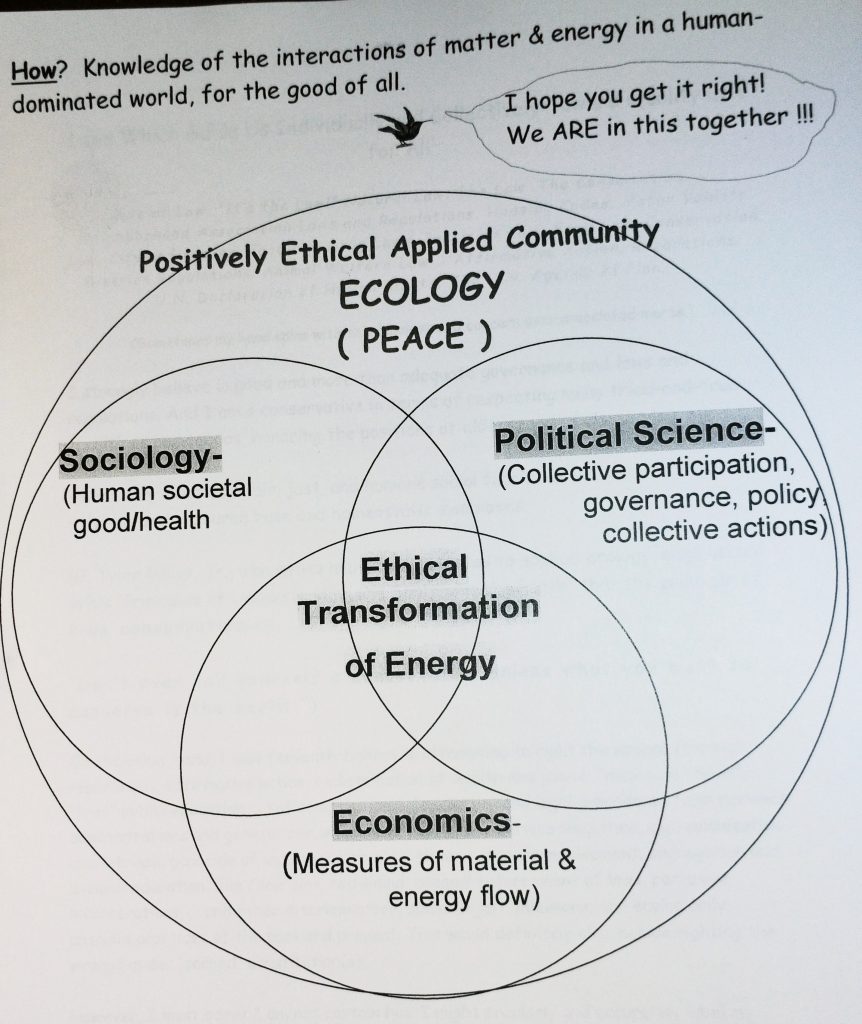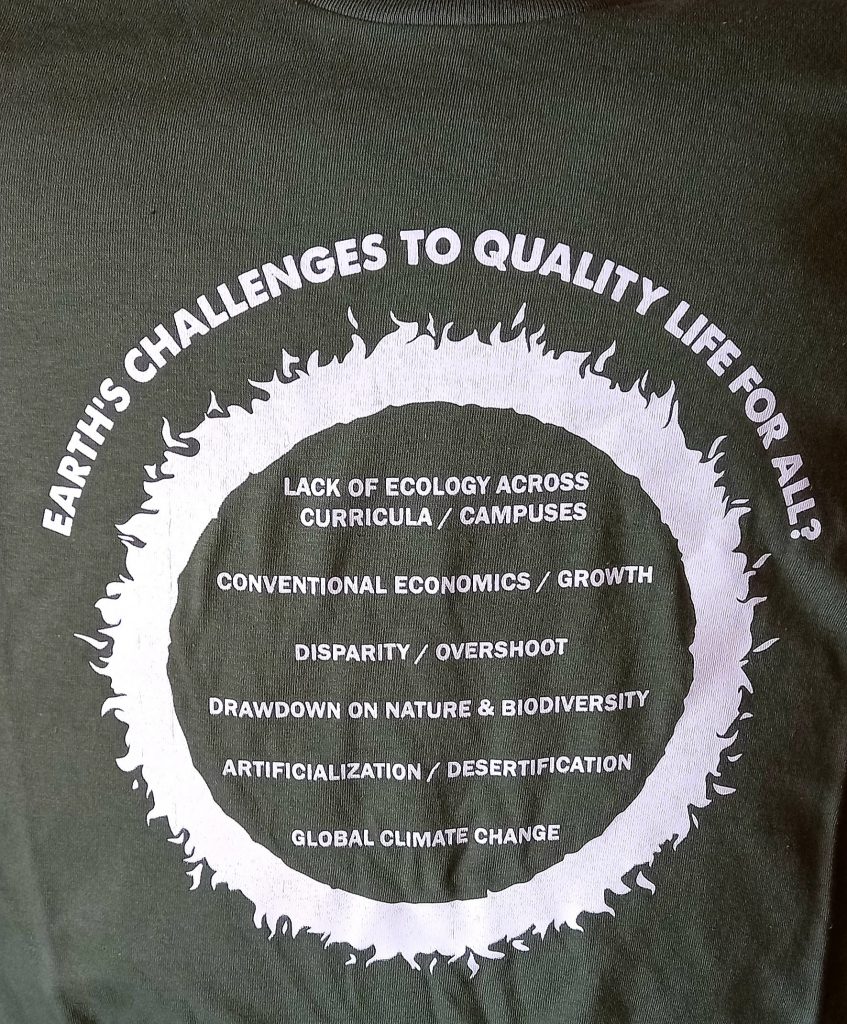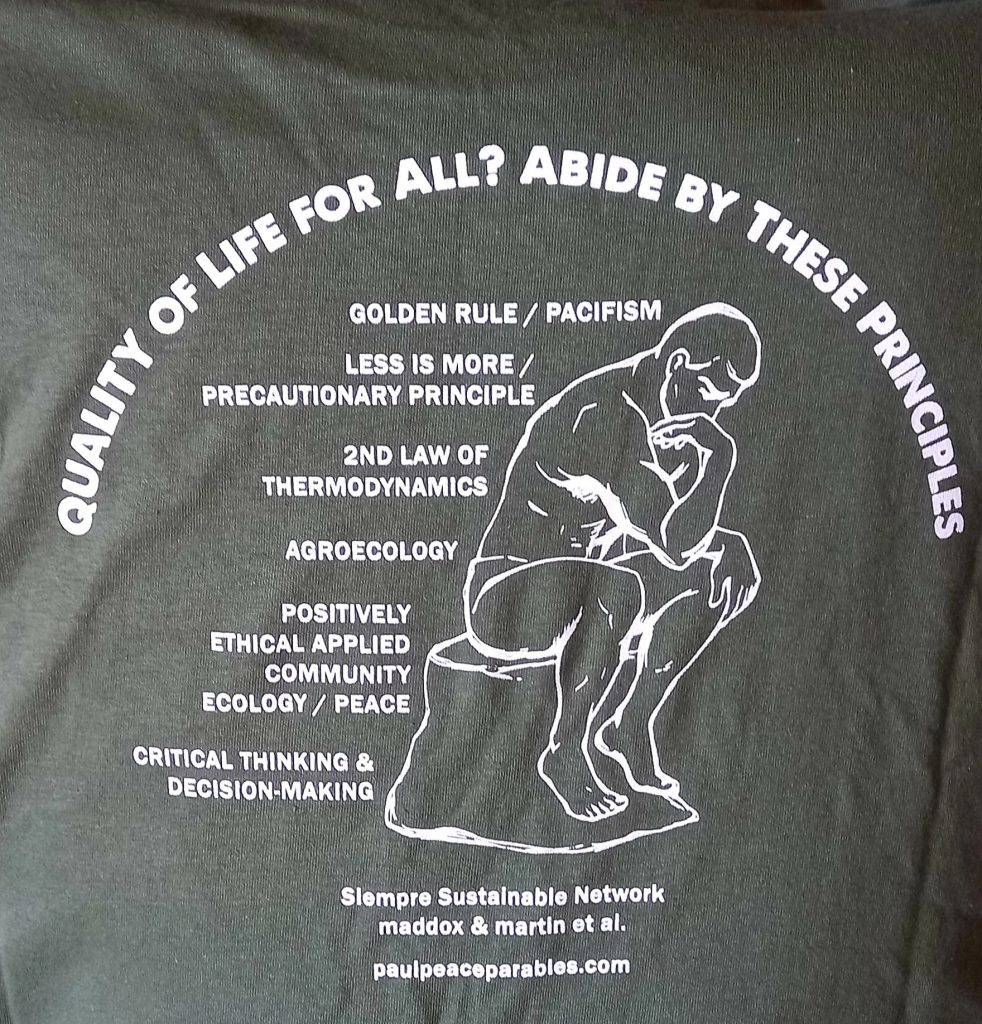
1. Myth, Religion, Faith.
Because God “is a mystery that absolutely transcends all human categories of thought,” the function of myth is “to put man in accord with nature” and God. (Transformations of Myth Through Time, Joseph Campbell. 1990).
,,, I did enjoy and learn through the interviews by LBJ’s former press secretary, Bill Moyers of Joseph Campbell in the 1980s. https://billmoyers.com/series/joseph-campbell-and-the-power-of-myth-1988/ However, many others contributed to my (very incomplete) understanding of myth, religion, and faith including Karen Armstrong and Stephen J. Gould.
Neverthess, I am probably most in tune with E.O. Wilson who had said …
“In fact, I’m not an atheist – I’m a scientist. Atheism is the belief that there is no god, and you declare there is no god: ‘Come, my fellow atheists, let us march together and conquer those idiots who think there is a god – all these other tribes. We’re going to prevail.’
I would even say I’m agnostic because I’m a scientist. Being an agnostic means saying, dogmatically, that we will never be able to know, so give it up. The important thing is that it appears that humans, as a species, share a religious impulse. You can call it theological, you can call it spiritual, but humans everywhere have a strong tendency to wonder about whether they’re being looked over by a god or not. Practically every person ponders whether they’re going to have another life. These are the things that unite humanity.
If humans have a built-in spiritual yearning, can we do anything about it?
This transcendent searching has been hijacked by the tribal religions. So I would say that for the sake of human progress, the best thing we could possibly do would be to diminish, to the point of eliminating, religious faiths. But certainly not eliminating the natural yearnings of our species or the asking of these great questions.” https://whyevolutionistrue.com/2015/01/22/e-o-wilson-im-not-an-atheist-im-a-scientist-and-ant-lagniappe/
2. Truths & Biological/Ecological Principles.
Even though the field of philosophy involves a search for fundamental Truths, Dr. E. O. Wilson emphasized that science, not philosophy (or religion) will explain the meaning of existence. And in his book Consilience and others, Wilson stressed the importance of a merger of science and the humanities. …
…………………………..
Some of the very basic biological principles are: cell theory, gene theory, homeostasis, evolutionary theory, and the laws of thermodynamics. https://www.inspiritvr.com/principles-of-biology-study-guide/ …
Obviously overlapping, some basic ecological principles are: 1. Evolution organizes ecological systems into hierarchies. 2. The sun is the ultimate source of energy for most ecosystems. 3. Organisms are chemical machines that run on energy. 4. Chemical nutrients cycle repeatedly while energy flows through an ecosystem. 5. The rate that a population’s abundance in a given area increases or decreases reflects the balance of its births, deaths, and net migration into the area. Individuals with features that improve their ability to survive (i.e., not die) and make copies of themselves will tend to increase in that population. 6. The rate that the diversity of species in an area changes reflects the balance of the number of new forms that arise, those that go extinct, and those that migrate into the area. Individuals and species that have features allowing them to survive and reproduce in a local environment will tend to persist there. 7. Organisms interact—do things to each other—in ways that influence their abundance. 8. Ecosystems are organized into webs of interactions. 9. Human populations have an outsized role in competing with, preying upon, and helping other organisms. 10. Ecosystems provide essential services to human populations. https://michaelkaspari.org/2017/07/17/the-ten-principles-of-ecology/
3. Scientific Laws, Theories, Well-Developed/Solid Hypotheses
Below are some examples of
some scientific laws, theories, well-developed/solid hypotheses:
Hubble’s Law of Cosmic Expansion
Kepler’s Laws of Planetary Motion
Archimedes’ Buoyancy Principle
Evolution and Natural Selection
Heisenberg’s Uncertainty Principle
https://science.howstuffworks.com/innovation/scientific-experiments/10-scientific-laws-theories.htm
4. Needed Interatcions in “1”, “2”, & “3” Above.
Faith and science are both important to the resilience and sustainability of socio-political/economic (ecological) entities involving humans in ecological communities. However, more and more we need to rely on good, thorough, solid (profound & holistic) science rather than inherent, indoctrinated faith in order to realize resilient, sustainable ecological communities which have sustainable livelihoods … and quality life for all.
pbm ( 7 S’s / VV->^^ )


